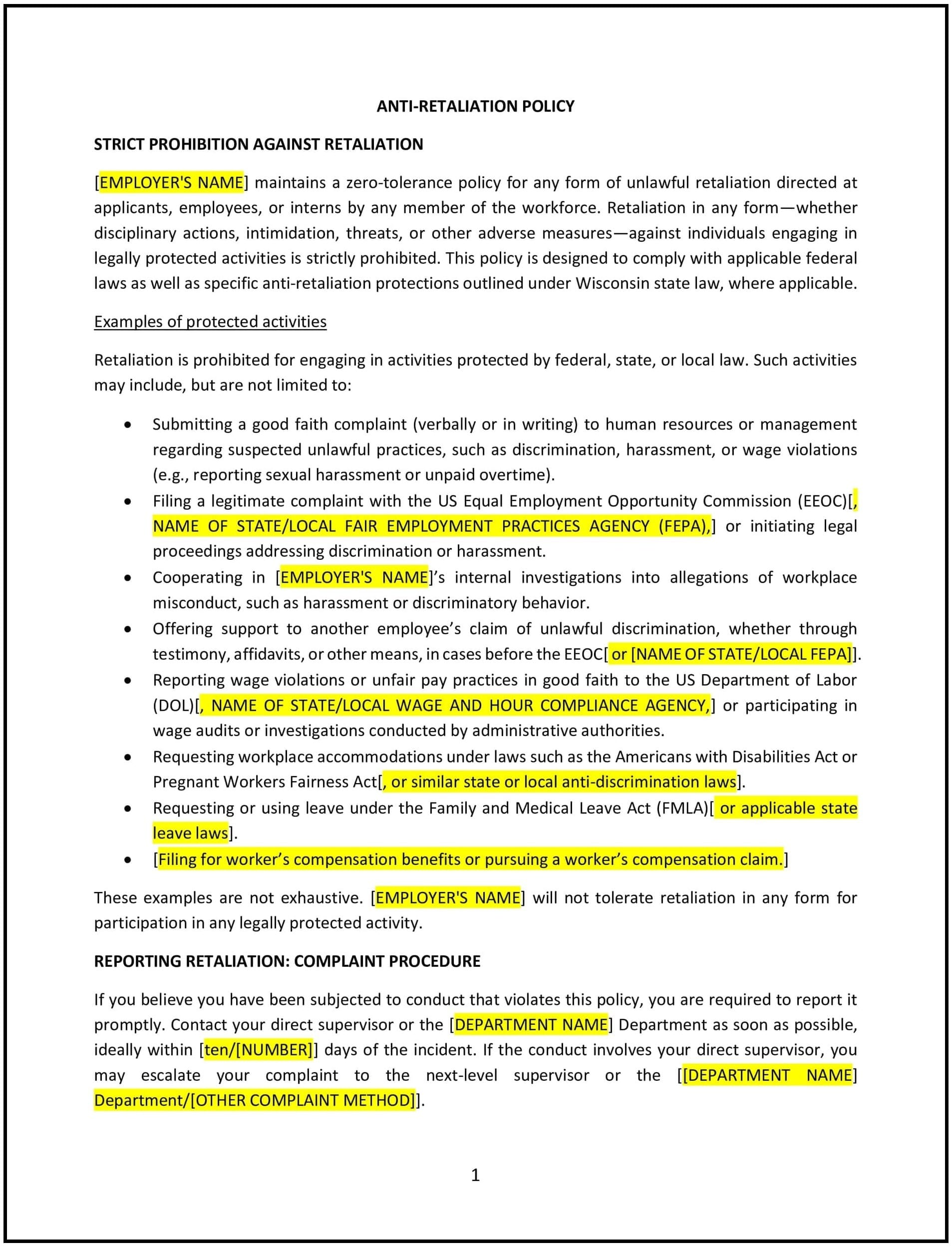Got contracts to review? While you're here for policies, let Cobrief make contract review effortless—start your free review now.

Customize this template for free
This anti-retaliation policy is designed to protect employees in Wisconsin from retaliation for engaging in protected activities, such as reporting discrimination, harassment, safety violations, or other legal concerns. The policy promotes a safe and supportive work environment where employees feel confident raising issues without fear of adverse consequences.
By adopting this policy, businesses can create a culture of transparency, trust, and legal compliance, fostering an open environment for addressing workplace concerns.
How to use this anti-retaliation policy (Wisconsin)
- Clarify prohibited retaliation: Define what constitutes retaliation, including adverse actions such as demotion, termination, harassment, or other unfavorable treatment based on employees' protected activities.
- Encourage reporting: Provide clear instructions for employees on how to report concerns regarding retaliation or violations of the policy. Ensure that employees know how to reach HR or a designated representative for assistance.
- Outline investigation procedures: Specify the process for investigating retaliation complaints, ensuring fairness and confidentiality throughout the investigation.
- Establish consequences for retaliation: Clearly describe the potential consequences for those found guilty of retaliating against employees, including disciplinary actions or termination.
- Support compliance: Ensure the policy aligns with both state and federal laws, including Wisconsin’s labor laws and federal anti-retaliation statutes.
Benefits of using an anti-retaliation policy (Wisconsin)
Adopting this anti-retaliation policy provides several advantages for businesses in Wisconsin:
- Fosters trust: Promotes a culture where employees feel safe to voice concerns, leading to stronger relationships between staff and management.
- Supports compliance: Promotes alignment with federal and state labor laws, helping businesses avoid legal risks associated with retaliation claims.
- Improves morale: Demonstrates a commitment to fair treatment, reducing fear and promoting a positive, open workplace culture.
- Reduces liability: Mitigates the risk of lawsuits or legal penalties by taking a proactive stance against retaliation in the workplace.
- Encourages transparency: Encourages employees to report unethical behavior, leading to improved business practices and a healthier workplace environment.
Tips for using an anti-retaliation policy (Wisconsin)
- Promote awareness: Regularly communicate the policy to all employees, including during onboarding, training sessions, and periodic reminders.
- Train leadership: Provide training for managers and supervisors on identifying and preventing retaliation and how to handle complaints in compliance with the policy.
- Monitor the workplace: Keep an eye out for any signs of retaliation and take prompt action to address concerns before they escalate.
- Document actions: Maintain thorough records of any complaints, investigations, and actions taken to ensure transparency and accountability.
- Encourage feedback: Create channels for employees to provide anonymous feedback on the effectiveness of the policy, helping to refine and improve the system over time.